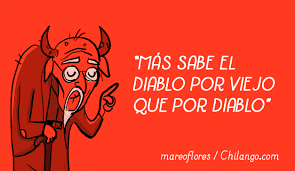From a Father to his Son: Ta-Nehisi Coates' "Between the World and Me"
In my circles, an ardent buzz has been around Ta-Nahesi Coates' Between the World and Me. Jon Stewart, at the end of his run, interviewed him. President Obama is reading him on vacation. Friends have read him this summer and recommended him. Flying to Washington, D.C. recently, he came up in conversation with a stranger after discussing Michelle Alexander's The New Jim Crow, which the stranger was reading. The book has drawn its stream of praise (e.g., Michelle Alexander in The New York Times) and criticism (Rich Lowry in Politico.com). The book arrived some time ago, but I finally took Monday afternoon and devoured it.
Coates, inspired by rereading James Baldwin's The Fire Next Time, structures his book, written to his son, in three segments. Coates' description of the body, especially the Black body, and the violence done to it was striking. Coates' description and dismissal of the Dream and the Dreamer appeals to me as bearing a weighty truth. The book conveys a feeling of tremendous intimacy, written as father to son.
 |
| Ta-Nehisi Coates (Wikipedia) |
I have spent much of my studies searching for the right question by which I might fully understand the breach between the world and me. I have not spent my time studying the problem of "race" -- "race" itself is just a restatement and retrenchment of the problem. (p. 115)
He continues:
The changes have awarded me a rapture that comes only when you can no longer be lied to, when you have rejected the Dream. But even more, the changes have taught me how to best exploit that singular gift of study, to question what I see, then to question what I see after that, because the questions matter as much, perhaps more than, the answers. (p. 116)
To be honest, I would draw a comparison in this writing to that of Rainier Maria Rilke and his more hopeful Letters to a Young Poet. Some may cringe at the comparison. There is a grittiness about Coates' writing, his experience, but Rilke too urges his young correspondent to:
Be patient toward all that is unsolved in your heart and try to love the questions themselves, like locked rooms and like books that are now written in a very foreign tongue. Do not now seek the answers, which cannot be given you because you would not be able to live them. And the point is, to live everything. Live the questions now. Perhaps you will then gradually, without noticing it, live along some distant day into the answer.
Coates' work has a very different feel, undeniably, but, like Rilke, he seeks to share his experience with a younger person, in this instance, his son. The experience, at the end, is to love the questions.
Between the World and Me is a great book. In the way that it reminds me of Rilke, I believe that it may speak powerfully to younger persons. Neither Rilke nor Coates propose an answer so much as questions. For all of us, old and young, Coates raises important and troubling questions of race that have vexed us for a very long time in this land. Ignoring the Dream and seeking truth, Coates provides a prod to ask better questions.




Comments
Post a Comment